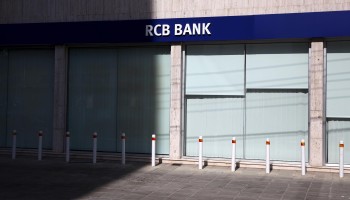Israeli billionaire Arkady Gaydamak and French tycoon Pierre Falcone are accused of trafficking $790 million worth of Soviet-made arms to Angola’s government during the civil war in the African country. Both deny that they broke the law, as do Jean-Christophe Mitterand and former French Interior Minister Charles Pasqua, who are accused of taking bribes to facilitate the deals.
Judicial investigators spent seven years on their probe and came up with a 468-page indictment on a global trade that rarely sees much daylight. Prosecutors charge that Gaydamak and Falcone sold tanks, helicopters, rifles and artillery pieces to Angola through a France-based firm and its eastern European subsidiary from 1993 to 1998, in breach of French law. In exchange, they said, Angolan oil flowed to multi-national companies.
Hundreds of Thousands Died
Angola’s 27-year civil war was a Cold War proxy war between the Marxist government of Jose Eduardo Dos Santos, backed by Cuban soldiers, and the UNITA rebels of the US- and South Africa-backed Jonas Savimbi. Officials say as many as 300,000 people died in the conflict that ended in 2002.
The French trial is expected to last until March. Gaydamak, who also owns the Beitar football team, is being tried in absentia as French officials did not seek his extradition from Israel, which does not allow its citizens to be extradited. Falcone, Gaydamak and Mitterrand would each face up to 10 years in prison and hundreds of thousands of dollars in fines if convicted.
The day after the trial opened, Angola’s government Tuesday (Oct. 7) asked the judge to stop stop it saying it would jeopardize Angola’s defense secrets.
Falcone’s lawyers have also asked that the trial be stopped, saying there was no reason to hold the trial in France because the weapons never transited French territory – their argument was that the Kalashnikovs and other Russian weaponry were moved by a Slovak company that Falcone and Gaydamak controlled. Prosecutor Romain Victor dismissed this, saying that the involvement of French bank Paribas and other French companies were connection enough.
Albania Arrests Fugitive Turkish Crypto CEO
At the request of Ankara, Albanian police arrested the founder of what was once one of Turkey’s biggest cryptocurrency...





